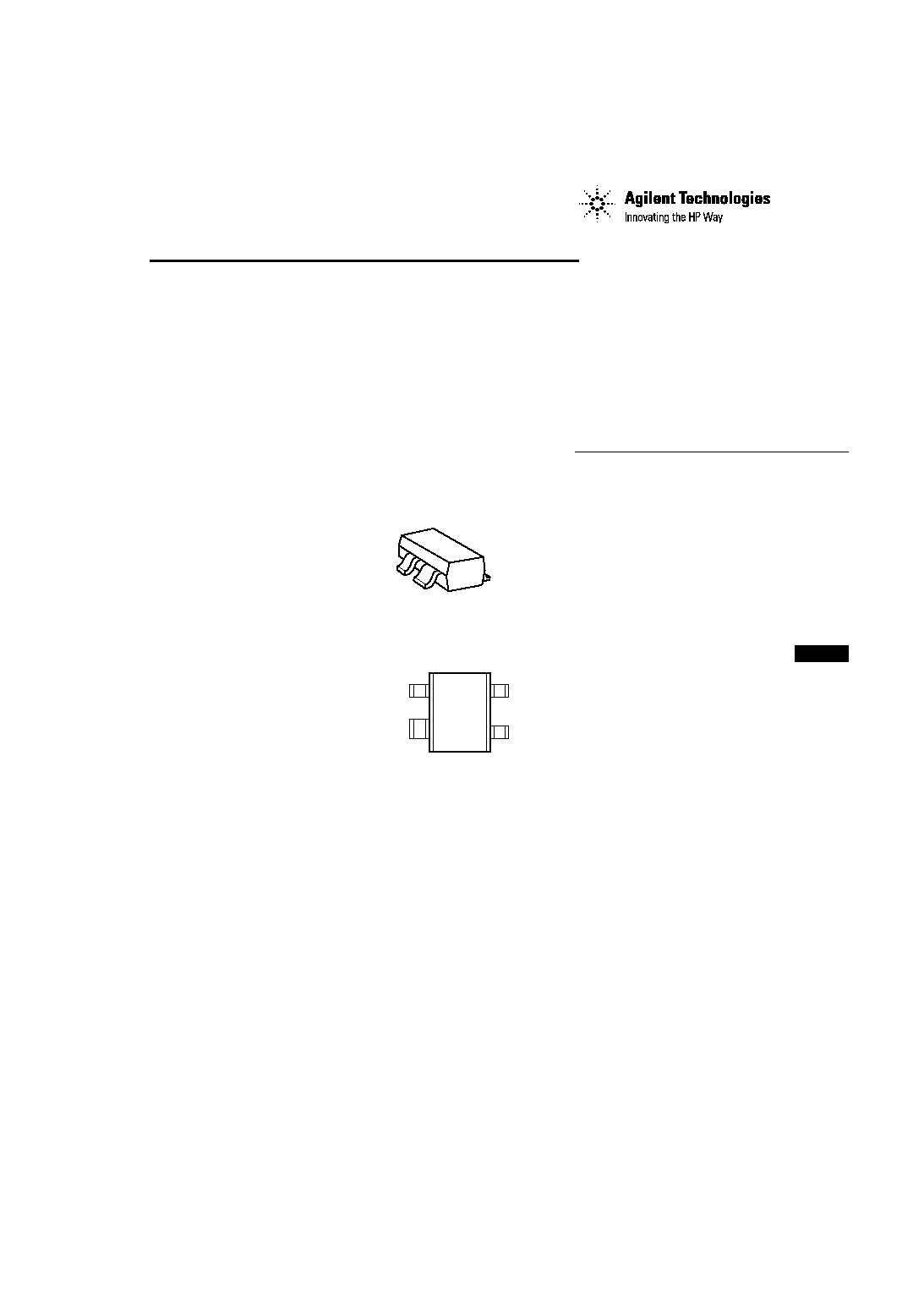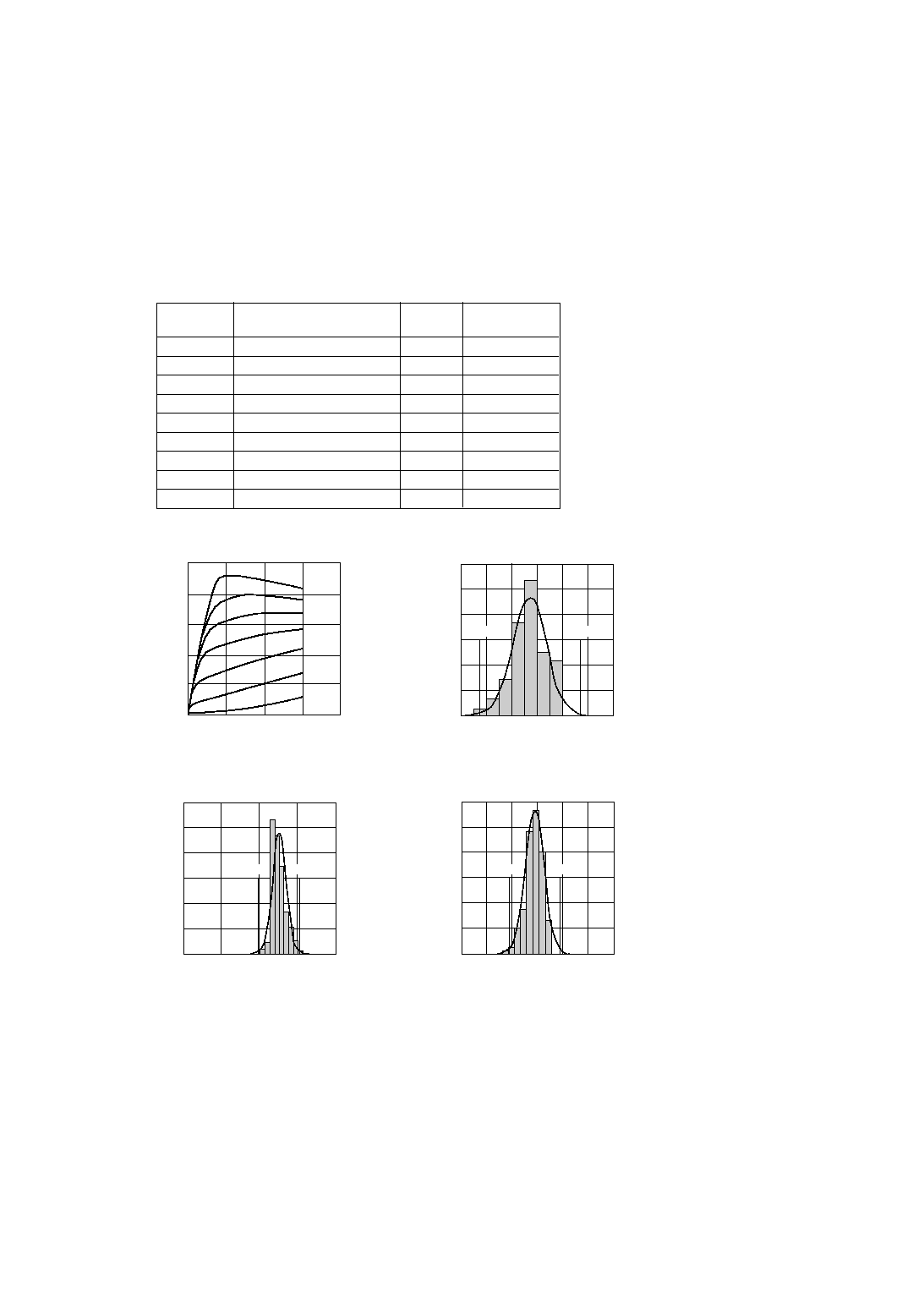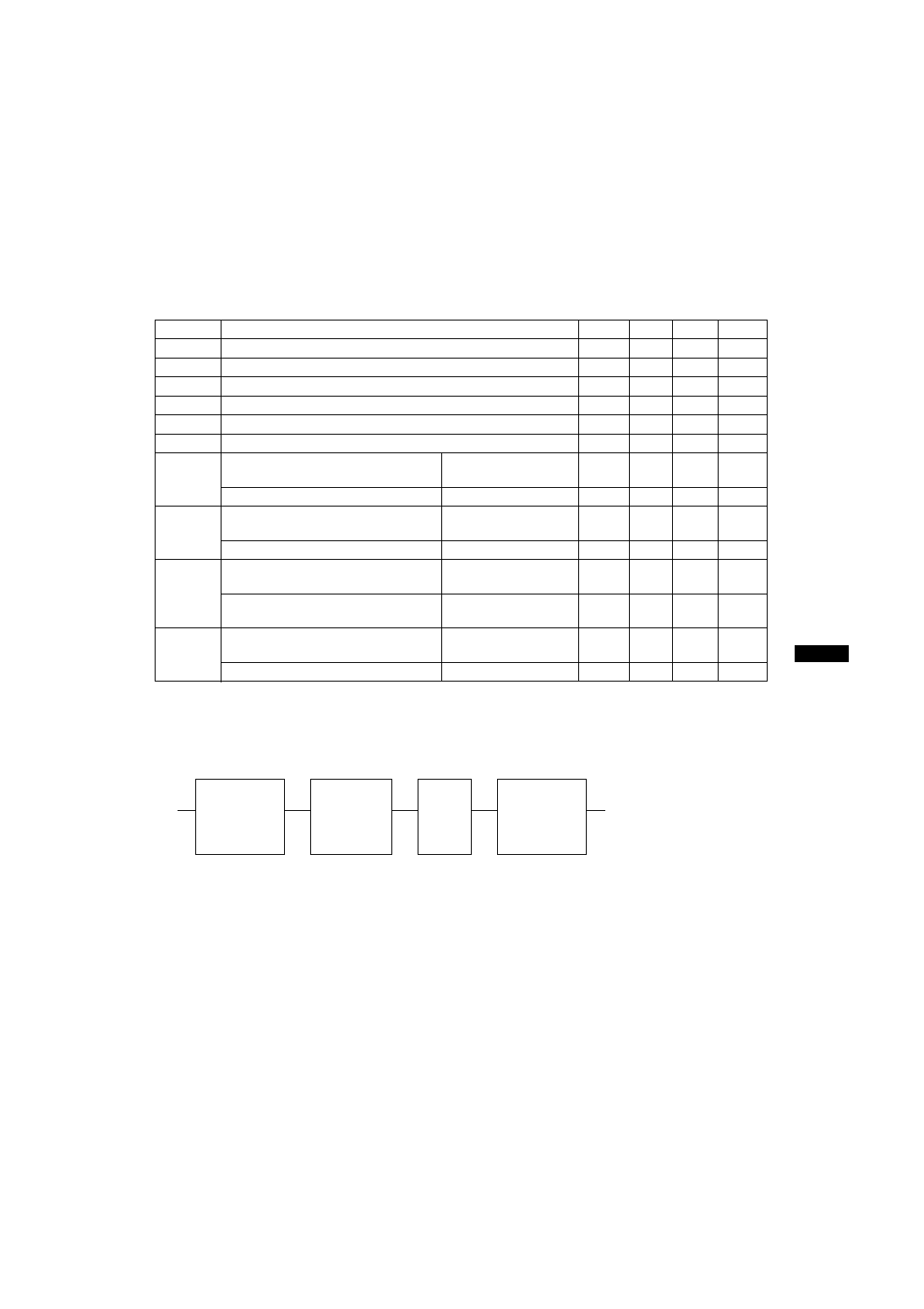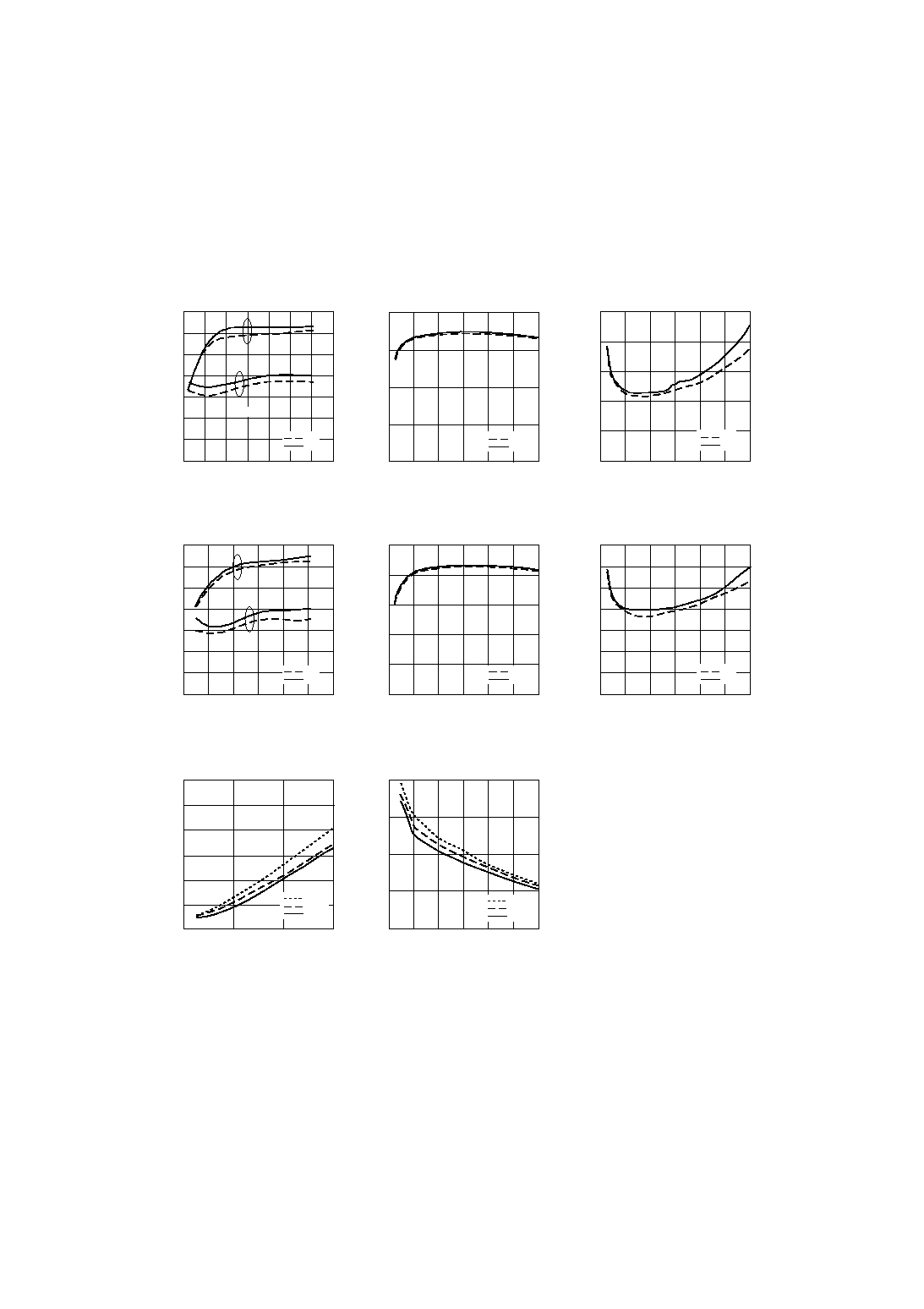
1
Low Noise Pseudomorphic HEMT
in a Surface Mount Plastic Package
Technical Data
ATF-34143
Features
· Low Noise Figure
· Excellent Uniformity in
Product Specifications
· Low Cost Surface Mount
Small Plastic Package
SOT-343 (4 lead SC-70)
· Tape-and-Reel Packaging
Option Available
Specifications
1.9 GHz; 4 V, 60 mA (Typ.)
· 0.5 dB Noise Figure
· 17.5 dB Associated Gain
· 20 dBm Output Power at
1 dB Gain Compression
· 31.5 dBm Output 3
rd
Order
Intercept
Applications
· Low Noise Amplifier for
Cellular/PCS Base Stations
· LNA for WLAN, WLL/RLL,
LEO, and MMDS
Applications
· General Purpose Discrete
PHEMT for Other Ultra Low
Noise Applications
Description
Agilent's ATF-34143 is a high
dynamic range, low noise,
PHEMT housed in a 4-lead SC-70
(SOT-343) surface mount plastic
package.
Based on its featured perfor-
mance, ATF-34143 is suitable for
applications in cellular and PCS
base stations, LEO systems,
MMDS, and other systems requir-
ing super low noise figure with
good intercept in the 450 MHz to
10 GHz frequency range.
Pin Connections and
Package Marking
Note:
Top View. Package marking
provides orientation and identification.
"4P" = Device code
"x" = Date code character. A new
character is assigned for each month, year.
GATE
4Px
SOURCE
DRAIN
SOURCE
Surface Mount Package
SOT-343
88759/05-3.PM6.5J
2001.04.26, 9:14 AM
Page 1
Adobe PageMaker 6.5J/PPC

2
ATF-34143 Absolute Maximum Ratings
[1]
Absolute
Symbol
Parameter
Units
Maximum
V
DS
Drain - Source Voltage
[2]
V
5.5
V
GS
Gate - Source Voltage
[2]
V
-5
V
GD
Gate Drain Voltage
[2]
V
-5
I
D
Drain Current
[2]
mA
I
dss
[3]
P
diss
Total Power Dissipation
[4]
mW
725
P
in max
RF Input Power
dBm
17
T
CH
Channel Temperature
°
C
160
T
STG
Storage Temperature
°
C
-65 to 160
jc
Thermal Resistance
[5]
°
C/W
165
Notes:
1. Operation of this device above any one
of these parameters may cause
permanent damage.
2. Assumes DC quiescent conditions.
3. V
GS
= 0 volts.
4. Source lead temperature is 25
°
C.
Derate 6 mW/
°
C for T
L
> 40
°
C.
5. Thermal resistance measured using
150
°
C Liquid Crystal Measurement
method.
6. Under large signal conditions, V
GS
may
swing positive and the drain current
may exceed I
dss
. These conditions are
acceptable as long as the maximum
P
diss
and P
in max
ratings are not
exceeded.
Product Consistency Distribution Charts
[7]
Notes:
7. Distribution data sample size is 450
samples taken from 9 different wafers.
Future wafers allocated to this product
may have nominal values anywhere
within the upper and lower spec limits.
8. Measurements made on production
test board. This circuit represents a
trade-off between an optimal noise
match and a realizeable match based
on production test requirements.
Circuit losses have been de-embedded
from actual measurements.
V
DS
(V)
Figure 1. Typical/Pulsed I-V Curves
[6]
.
(V
GS
= -0.2 V per step)
I
DS
(mA)
0
2
4
6
8
250
200
150
100
50
0
+0.6 V
0 V
0.6 V
OIP3 (dBm)
Figure 2. OIP3 @ 2 GHz, 4 V, 60 mA.
LSL=29.0, Nominal=31.8, USL=35.0
29
31
30
33
34
32
35
120
100
80
60
40
20
0
-3 Std
+3 Std
Cpk = 1.37245
Std = 0.66
9 Wafers
Sample Size = 450
NF (dB)
Figure 3. NF @ 2 GHz, 4 V, 60 mA.
LSL=0.1, Nominal=0.47, USL=0.8
0
0.4
0.2
0.6
0.8
120
100
80
60
40
20
0
-3 Std
+3 Std
Cpk = 2.69167
Std = 0.04
9 Wafers
Sample Size = 450
GAIN (dB)
Figure 4. Gain @ 2 GHz, 4 V, 60 mA.
LSL=16.0, Nominal=17.5, USL=19.0
16
17
16.5
18
18.5
17.5
19
120
100
80
60
40
20
0
-3 Std
+3 Std
Cpk = 2.99973
Std = 0.15
9 Wafers
Sample Size = 450
88759/05-3.PM6.5J
2001.04.26, 9:14 AM
Page 2
Adobe PageMaker 6.5J/PPC

3
ATF-34143 Electrical Specifications
T
A
= 25
°
C, RF parameters measured in a test circuit for a typical device
Symbol
Parameters and Test Conditions
Units
Min.
Typ.
[2]
Max.
I
dss
[1]
Saturated Drain Current
V
DS
= 1.5 V, V
GS
= 0 V
mA
90
118
145
V
P
[1]
Pinchoff Voltage
V
DS
= 1.5 V, I
DS
= 10% of I
dss
V
-0.65
-0.5
- 0.35
I
d
Quiescent Bias Current
V
GS
= 0.34 V, V
DS
= 4 V
mA
--
60
--
g
m
[1]
Transconductance
V
DS
= 1.5 V, g
m
= I
dss
/V
P
mmho
180
230
--
I
GDO
Gate to Drain Leakage Current
V
GD
= 5 V
µ
A
500
I
gss
Gate Leakage Current
V
GD
= V
GS
= -4 V
µ
A
--
30
300
NF
Noise Figure
f = 2 GHz
V
DS
= 4 V, I
DS
= 60 mA
dB
0.5
0.8
V
DS
= 4 V, I
DS
= 30 mA
0.5
f = 900 MHz
V
DS
= 4 V, I
DS
= 60 mA
dB
0.4
G
a
Associated Gain
f = 2 GHz
V
DS
= 4 V, I
DS
= 60 mA
dB
16
17.5
19
V
DS
= 4 V, I
DS
= 30 mA
17
f = 900 MHz
V
DS
= 4 V, I
DS
= 60 mA
dB
21.5
OIP3
Output 3
rd
Order
f = 2 GHz
V
DS
= 4 V, I
DS
= 60 mA
dBm
29
31.5
Intercept Point
[3]
+5 dBm P
out
/Tone
V
DS
= 4 V, I
DS
= 30 mA
30
f = 900 MHz
V
DS
= 4 V, I
DS
= 60 mA
dBm
31
+5 dBm P
out
/Tone
P
1dB
1 dB Compressed
f = 2 GHz
V
DS
= 4 V, I
DS
= 60 mA
dBm
20
Intercept Point
[3]
V
DS
= 4 V, I
DS
= 30 mA
19
f = 900 MHz
V
DS
= 4 V, I
DS
= 60 mA
dBm
18.5
Notes:
1. Guaranteed at wafer probe level
2. Typical value determined from a sample size of 450 parts from 9 wafers.
3. Using production test board.
Figure 5. Block diagram of 2 GHz producution test board used for Noise Figure, Associated Gain, P1dB, and OIP3 measure-
ments. This circuit represents a trade-off between an optimal noise match and associated impedance matching circuit
losses. Circuit losses have been de-embedded from actual measurements.
Input
50 Ohm
Transmission
Line Including
Gate Bias T
(0.5 dB loss)
Input
Matching Circuit
_mag = 0.30
_ang = 56
°
(0.4 dB loss)
DUT
50 Ohm
Transmission
Line Including
Drain Bias T
(0.5 dB loss)
Output
88759/05-3.PM6.5J
2001.04.26, 9:14 AM
Page 3
Adobe PageMaker 6.5J/PPC

4
ATF-34143 Typical Performance Curves
Notes:
1. Measurements made on a fixed toned production test board that was tuned for optimal gain match with reasonable noise figure at 4 V,
60 mA bias. This circuit represents a trade-off between optimal noise match, maximum gain match, and a realizable match based on
production test board requirements. Circuit losses have been de-embedded from actual measurements.
2. P
1dB
measurements are performed with passive biasing. Quicescent drain current, I
DSQ
, is set with zero RF drive applied. As P
1dB
is
approached, the drain current may increase or decrease depending on frequency and dc bias point. At lower values of I
DSQ
the device
is running closer to class B as power output approaches P
1dB
. This results in higher PAE (power added efficiency) when compared to
a device that is driven by a constant current source as is typically done with active biasing. As an example, at a V
DS
= 4 V and
I
DSQ
= 10 mA, I
d
increases to 62 mA as a P
1dB
of +19 dBm is approached.
I
DSQ
(mA)
Figure 6. OIP3 and P
1dB
vs. I
DS
and
V
DS
Tuned for NF @ 4V, 60 mA at
2GHz.
[1,2]
OIP3,
P
1dB
(dBm)
0
40
20
80
120
100
60
140
35
30
25
20
15
10
5
0
OIP3
3 V
4 V
P1dB
I
DSQ
(mA)
Figure 9. OIP3 and P
1dB
vs. I
DS
and
V
DS
Tuned for NF @ 4 V, 60 mA at
900MHz.
[1,2]
OIP3,
P
1dB
(dBm)
0
40
20
80
100
60
120
35
30
25
20
15
10
5
0
OIP3
3 V
4 V
P1dB
CURRENT (mA)
Figure 8. Noise Figure vs. Current
(I
d
)
and Voltage (V
DS
) at 2 GHz.
[1,2]
NOISE FIGURE (dB)
0
40
20
80
100
60
120
1
0.8
0.6
0.4
0.2
0
3 V
4 V
CURRENT (mA)
Figure 11. Noise Figure vs. Current
(I
d
)
and Voltage (V
DS
) at 900 MHz.
[1,2]
NOISE FIGURE (dB)
0
40
20
80
100
60
120
3 V
4 V
0.7
0.6
0.5
0.4
0.3
0.2
0.1
0
CURRENT (mA)
Figure 7. Associated Gain vs. Current
(I
d
)
and Voltage (V
D
) at 2 GHz.
[1,2]
ASSOCIA
TED GAIN (dB)
0
40
20
80
100
60
120
3 V
4 V
20
15
10
5
0
CURRENT (mA)
Figure 10. Associated Gain vs. Current
(I
d
)
and Voltage (V
D
) at 900 MHz.
[1,2]
ASSOCIA
TED GAIN (dB)
0
40
20
80
100
60
120
3 V
4 V
25
20
15
10
5
0
FREQUENCY (GHz)
Figure 12. Fmin vs. Frequency
and
Current at 4 V.
Fmin (dB)
0
4.0
2.0
6.0
60 mA
40 mA
20 mA
1.2
1.0
0.8
0.6
0.4
0.2
0
FREQUENCY (GHz)
Figure 13. Associated Gain vs.
Frequency
and Current at 4 V.
G
a
(dB)
0
2.0
1.0
4.0
5.0
3.0
6.0
25
20
15
10
5
60 mA
40 mA
20 mA
88759/05-3.PM6.5J
2001.04.26, 9:14 AM
Page 4
Adobe PageMaker 6.5J/PPC

5
ATF-34143 Typical Performance Curves,
continued
Note:
1. P
1dB
measurements are performed with passive biasing. Quicescent drain current, I
DSQ
, is set with zero RF drive applied. As P
1dB
is
approached, the drain current may increase or decrease depending on frequency and dc bias point. At lower values of I
DSQ
the device
is running closer to class B as power output approaches P
1dB
. This results in higher PAE (power added efficiency) when compared to
a device that is driven by a constant current source as is typically done with active biasing. As an example, at a V
DS
= 4 V and
I
DSQ
= 10 mA, I
d
increases to 62 mA as a P
1dB
of +19 dBm is approached.
Figure 19. P
1dB
vs. I
DS
Active Bias
Tuned for min NF @ 4 V, 60 mA at
900MHz.
FREQUENCY (MHz)
Figure 15. P
1dB
, IP3 vs. Frequency
and
Temperature at V
DS
= 4 V,
I
DS
= 60 mA.
[1]
P1dB,
OIP3 (dBm)
0
2000
4000
6000
8000
33
31
29
27
25
23
21
19
17
85
°
C
25
°
C
-40
°
C
OIP3
P
1dB
I
DSQ
(mA)
Figure 16. NF, Gain, OP1dB and OIP3
vs. I
DS
at 4 V and 3.9 GHz Tuned for
Noise Figure.
[1]
GAIN (dB),
OP1dB,
and OIP3 (dBm)
NOISE FIGURE (dB)
0
40
20
80
100
120
60
140
Gain
OP1dB
OIP3
NF
35
30
25
20
15
10
5
0
5.0
4.5
4.0
3.5
3.0
2.5
2.0
1.5
1.0
0.5
0
I
DSQ
(mA)
Figure 17. NF, Gain, OP1dB and OIP3
vs. I
DS
at 4 V and 5.8 GHz Tuned for
Noise Figure.
[1]
GAIN (dB),
OP1dB,
and OIP3 (dBm)
NOISE FIGURE (dB)
0
40
20
80
100
120
60
Gain
OP1dB
OIP3
NF
30
27
24
21
18
15
12
9
6
3
0
5.0
4.5
4.0
3.5
3.0
2.5
2.0
1.5
1.0
0.5
0
FREQUENCY (GHz)
Figure 14. Fmin and G
a
vs. Frequency
and Temperature at V
DS
= 4 V,
I
DS
= 60 mA.
G
a
(dB)
0
2000
4000
6000
8000
25
20
15
10
NF (dB)
1.5
1.0
0.5
0
85
°
C
25
°
C
-40
°
C
I
DS
(mA)
Figure 18. P
1dB
vs. I
DS
Active Bias
Tuned for NF @ 4 V, 60 mA at 2 GHz.
P
1d
B
(dBm)
0
100
50
150
25
20
15
10
5
0
-5
3 V
4 V
I
DS
(mA)
P
1d
B
(dBm)
0
100
50
150
25
20
15
10
5
0
-5
3 V
4 V
88759/05-3.PM6.5J
2001.04.26, 9:14 AM
Page 5
Adobe PageMaker 6.5J/PPC




